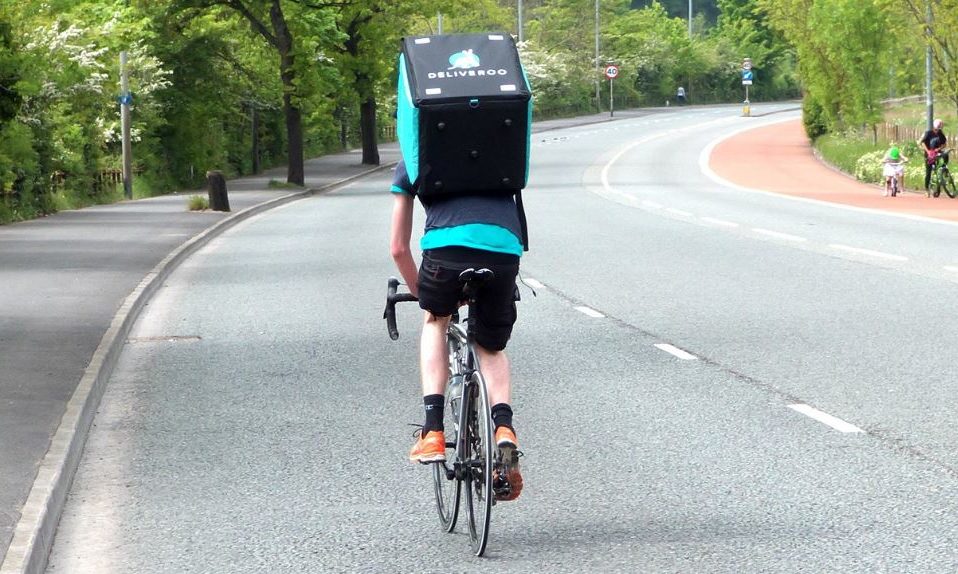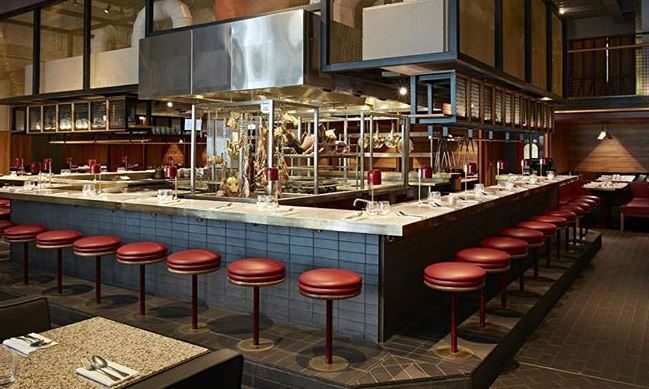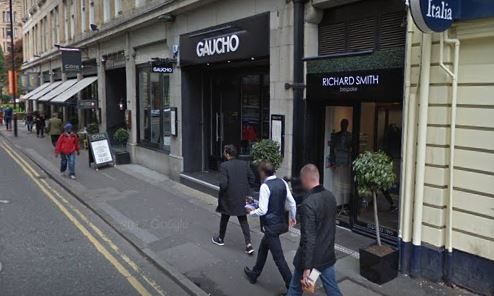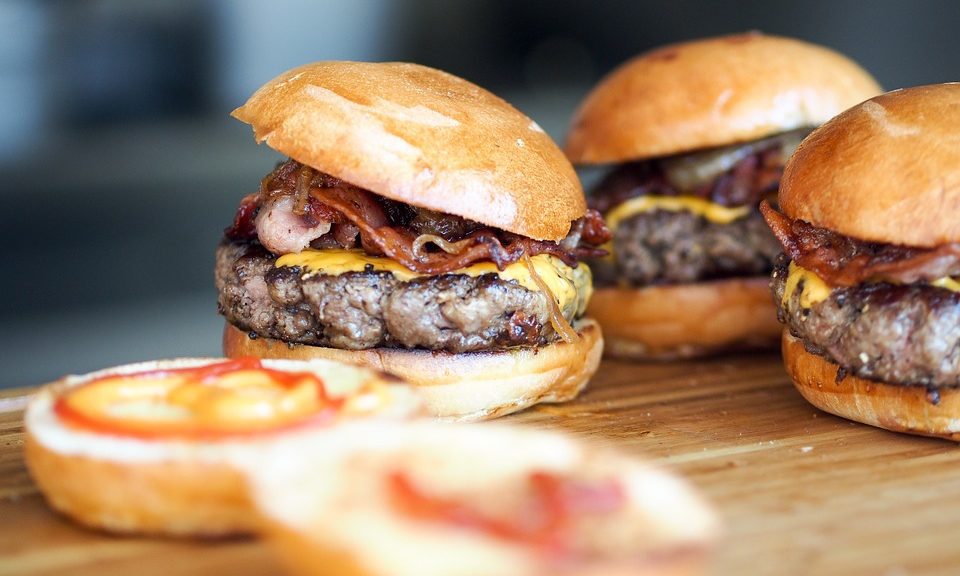Register to get 5 free articles
Reveal the article below by registering for our email newsletter.
Want unlimited access? View Plans
Already have an account? Sign in
Stolen food, high commission prices, overworked staff and ruining restaurants’ relationships with their customers – just a few claims made by restaurateurs who partner with door-to-door delivery apps such as Deliveroo. The massive growth of the British-born smartphone app, which allows customers to order meals from well-known high street restaurants directly to their homes, has not been without its controversies. Criticism over the way it pays its ‘riders’ (and does not call them ‘employees’) has formed part of an increasingly complex national debate about the so-called gig economy. But restaurateurs – the companies producing the stuff that actually goes on the bikes – have remained conspicuously quiet. Until now.
It is not just an anecdotal complaint (though the anecdotes are coming). Research published on 9 May by global valuation and corporate finance advisor, Duff & Phelps, with a specialism in the restaurant business, found that commission charges were leading restaurants to “fundamentally” alter their business models. The advisor’s research showed that on top of battling rising labour costs and business rates, a potential ban on zero-hour contracts and inflation running at 3%, restaurants were paying door-to-door apps on average between 20% to 25% of the bill for each order.
At the time of publishing the research, Jimmy Saunders, director at Duff & Phelps, said: “While the march of technology has offered growth in channels which didn’t exist several years ago, the disruption this has caused to the restaurant sector presents challenges and often requires capital investment at a time when the business faces many other cash flow pressures.”
Further research by restaurant online platform provider Preoday found that 82% of restaurants surveyed believed they were paying too much commission, and on the other side of the coin, consumers themselves were also unhappy with the commission rates – 70% said they would prefer it if restaurants kept their full bill price.
To the anecdotes. Startup Essex burger chain, Love Thy Burger, which has outlets in Colchester and Ipswich, is one of thousands of Deliveroo’s ‘partner restaurants’. Owner Adem Lacin, 28, says his restaurant has been “opened up to a new market” he says, but also describes a “mixed service” from the firm itself and a set of other “challenges” surrounding the new dynamic that its system has injected into his business.
Despite having had a positive experience with the app so far, and its effect on his business, Lacin says it is possible the company will begin gradually “creeping up the prices once people become reliant on them”. He also says there have been rare instances of “drivers who have stolen drinks and food” with no check-up from Deliveroo; tablet computers required in the restaurant by Deliveroo breaking down mid-shift and costing Love Thy Burger “around £2,000 to £3,000” in lost business; and he details how calls to Deliveroo helplines can take “ten, fifteen minutes to get through”. Clearly, Lacin says, this is “detrimental to service”. In a nod to quite how advanced Deliveroo’s technology is however, Lacin still makes a point of acknowledging how the convenience of “having the headache of logistics taken off my hands”, is worth the fees he is currently paying.
Along with worries of a price increase, Lacin’s concerns over the future of the relationship with Deliveroo include the app putting “£5m aside to actually develop their own foodservice brand”. He predicts that Deliveroo may enter direct competition with Love Thy Burger and many other businesses like it. “They have all our data,” he says, “they have everything that they need to take us on, they know all our customers, they know what they want, they know what times they order, they know where they order from, so why wouldn’t they?”
What are the standout positives from an operational perspective? When he can get through to Deliveroo on the phone, Lacin says Deliveroo are “quite good with us if there is a complaint” and adds that most of the time they will accept responsibility; but the concern is that this will not last forever. If restaurants become more reliant on Deliveroo, he says, the app could “just force restaurants to refund customers even if its Deliveroo’s fault”.
A NEW BREED OF CUSTOMER?
A so-far academic but nonetheless interesting point in the debate is whether apps like Deliveroo are expanding the takeaway market independently of the eat-in customer base, or if they are facilitating a migration of eat-in customers into their own living rooms, with lower order values, effectively empting the high street premises. Love Thy Burger has seen “erosion” in customers eating in since bringing in Deliveroo, and Lacin admits that he has seen it himself “as a customer and as a restaurant, there’s been times when I’ve thought about going out and thought actually I’ll just have it brought to my door”. But his perception of consumer behaviour from the point of view of his own business is that “they have also opened up a new market as well, so there’s extra, and that’s why I say its good at the moment”.
Moving customers from cover to couch is not the only possible danger on the horizon for restaurateurs. In May this year, Deliveroo announced a £5m ‘innovation fund’, but a very carefully-worded press release did not shed much light on who can expect what funding and by what mechanism. What is certain is that the app has plans afoot to launch what it calls ‘Editions’ – or ‘dark kitchens’ to the catering profession – where coverless cooking facilities under recognisable brand names will produce food exclusively for distribution through Deliveroo. It does not take much imagination to see how Deliveroo would have a great deal of additional power in a relationship that controls how restaurant brands can deliver their product to customers. The pot of money, supposedly put aside for its own restaurants, worries Lacin as it does many other restaurant owners. If they start to compete with their own partners, he says, then being on the platform at all will be “pointless”.
Ostensibly, Deliveroo is peddling the idea as a way for new chefs and restaurateurs to start their own brands, without the traditional expense of prime retail space and waiting staff. It is unclear what commission Deliveroo plans to take from ‘Editions’ orders, or indeed if it intends to manage the entire operation itself in the long term. Lacin says that he has no immediate plans to open a dark kitchen with Deliveroo or on his own, but says he has seen ‘Editions’ kitchens “in car parks in the back end of nowhere”. Due to cheap rents in residential areas, he says opening up a good old-fashioned takeaway in an area “where you’ve got the Chinese takeaway, the Indian and the fish and chip shop”, remains more attractive than experimenting with dark kitchens. The “big boys” in the industry have pulled out of ‘Editions’ due to the fact the restaurant is “completely in [Deliveroo’s] hands” according to Lacin. “I would never build my business around Deliveroo,” he asserts.
Love Thy Burger joined Deliveroo after trailing it in the smaller of his two branches and “liking what he saw”. At first the commission taken by Deliveroo was more than Lacin could afford however the app offered a better deal of “between 26% and 30%” and this has brought in increased revenue. However with his suspicions of a looming price rise, Lacin has looked at UberEats, which he says is starting to compete in the UK, but is not quite cheap enough yet. Asked if he had considered using the two apps in tandem, Lacin reveals that if he was to use UberEats alongside Deliveroo, there is a clause in his contract which he explains:“Deliveroo will put their price up”.
SO WHAT DOES DELIVEROO THINK?
A Deliveroo spokesperson commenting for this article said of claims that the app was starving restaurants of cash: “Restaurants who partner with Deliveroo see their revenue increase by up to 30% helping them and their suppliers grow and expand, creating thousands of jobs in the restaurant sector. We are always in discussion restaurants about commission to ensure it remains competitive and reflects the additional orders we bring to restaurant.
“We are actively working to make sure the order process is as efficient as possible for restaurants so they can maximise the amount of additional orders for their business while minimising the time required by staff.”
On the subject of whether Deliveroo creates a new type of customer who who eats at home rather than dining out, the statement was emphatic: “It’s wrong to simply see these as customers who would have otherwise walked into a restaurant.” He said his company is “driving orders to restaurants, who might have otherwise ordered from a local takeaway”, and says if those customers had not ordered they would have simply cooked at home. “Customers who order from Deliveroo are more likely to visit restaurants and order again from a business.” Notably, our spokesman did not release any data in support of this claim.
Since the interviews for this feature were conducted, Deliveroo has announced several new measures it says will give restaurants more control over their offering on the app. Chief among these was an automated updating mechanism for restaurant sales systems, designed to save massive amounts of staff time when entering an order. Deliveroo chief procurement officer Mike Hudack said that the new technology “allows front of house staff to focus on delivering an amazing dine in experience while boosting revenues and orders through delivery”. A generic statement from the company went even further, claiming the new technology would “save restaurants millions of pounds”. Again, no data or methodology for how Deliveroo arrived at an estimate in the “millions” was published, nor was there any attempt to calculate what this saving might look like when split between every premises plugged into the Deliveroo system.
Other efforts include giving partners “more control” over what they offer include ‘Marketplace+’, a service that allows restaurants to use their own delivery infrastructure alongside the Deliveroo online platform. A statement announcing the product said “no other company” could offer small restaurants access to “thousands of drivers”, alongside drivers belonging to their own infrastructure.
Deliveroo’s attempts to improve its offering for restaurants come directly after it has faced a series of challenges and problems. Just last month MP Frank Field gave permission for an investigation into the working conditions of Deliveroo riders during which Field said “bogus self-employment is being peddled by those who benefit so handsomely from the gig economy, to avoid the obligations they have to their workforce”. On June 29 the delivery app settled an employment dispute with 50 Deliveroo riders who had claimed against the company, paying out to the claimants. Each time Deliveroo has come under fire it has hidden behind carefully constructed PR stunts, from hosting refugee chefs in one of their Editions kitchens to making its ‘employees’ shareholders (not including riders, naturally). One wonders why Deliveroo’s PR team cannot be clear on issues such as the ambiguity surrounding ownership of Editions kitchens and who their £5m ‘Innovation Fund’ will actually benefit directly. Partners such as Love Thy Burger could be forgiven for preferring clarity rather than tales of charitable giving.
Just days ago against the colourful backdrop of French celebrations in Paris after winning the 2018 World Cup, Deliveroo drivers conducted a planned strike. They were joined by workers from Foodora, Uber and UberEats in striking over what they called ‘low wages’ and ‘dangerous working conditions’. The strike meant French football fans watching from home went without their takeaways for the match. The strike shows that the issue is much larger than one food delivery app, or even multiple food delivery apps.
In the hotel, taxi and trade industry, the ‘gig-economy’ is creating the same controversy. Airbnb has attracted the attention of the EU, the UK government and rivals in the hospitality sector after horror stories of fraudulent hosts and dodgy lets – fancy staying at a brothel or mould infested room? Hotel owners have a thorn in their side in online travel agents (OTAs) such as Expedia and Booking.com, which have cornered large swathes of the hotel market into paying 20-30% commission on the total price of bookings made through them. Their command of the top spots on Google search means hoteliers cannot afford to miss out on the OTAs offerings – if they do not subscribe their local competitors who did sign up will appear first in the paid ad listings.
In other sectors, licenced taxi drivers have carried out multiple strikes against Uber, another Silicon Valley app which they claim uses unlicensed drivers and undercuts them, not to mention rising concerns over the safety of Uber passengers. New kid on the block, Ikea’s TaskRabbit has brought gig economy into the trades – handy men at the tap of an app – and while the fire of controversy is only just starting to spread it has already been hit with tales of data breaches. All of these industries are experiencing what is just the beginning of the ‘gig-economy’ of the future. And who could mention all these tech giants without pointing to the astonishing rise of Amazon Prime, seemingly seeing the company creating ‘gig-economy’ subsidiaries for just about every profession imaginable.
So what’s next for Deliveroo? Next Tuesday (24th July) will see the conclusion of Frank Field’s investigation into the app, during which he has been attempting to “gather evidence from Deliveroo riders in an attempt to supplement the evidence base on the living standards of workers in the ‘gig economy’, as well as the need for any additional safeguards”. The inquiry has seen Deliveroo workers asked questions such as: “What impact, if any, do your pay and working patterns have on your personal finances and your home or family life?”, and: “Do you feel that the risks and rewards are shared fairly between Deliveroo and its riders, and can you explain why?” during a roundtable involving the Independent Workers Union of Great Britain (IWGB). The detail of the inquiry into its working conditions will almost certainly put bums on the edge of seats at Deliveroo, who could see fines and/or restrictions implemented as a result of the investigation.
Whether Field’s enquiries and conclusions will have any teeth – and the restaurant change can expect any meaningful redress of the balance – remains to be seen.



















